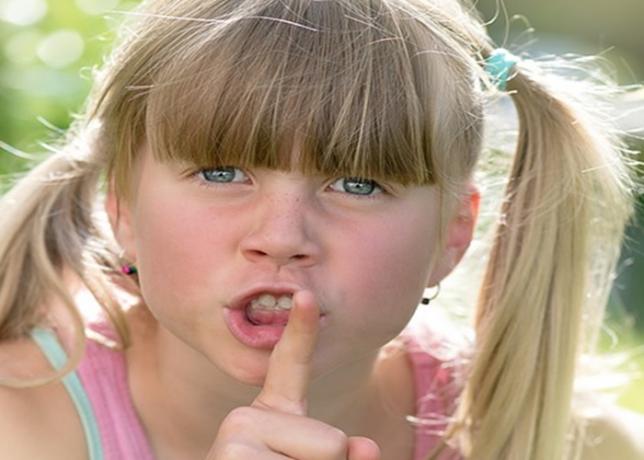
It couldn't be any different with vocabulary. In fact, language is one of the first acquisitions that children make throughout their development. Then, any word the child hears can be reproduced, including swear words.
This is an uneducated child thing! Not exactly. Depending on the child's age, she has no idea of the meaning of the word being said.
see more
Teacher performance is a key factor for the full inclusion of students…
Understand how children's behavior can indicate suffering in…
Yes, it can be a matter of education, if the child is frequently exposed to an environment where profanity is said immoderately, or if adults do not guide the child's conduct, even if he already understands the meaning of the word.
See too:Anxiety, insecurity and fear in young children
But, in general, the fact that a child swears has little to do with the education he receives. After all, she may have heard someone talking on the street, a friend from school, or even on television. And if everything is new, everything is discovered in childhood adventures, then the sound of the word can be too.
If the child is still in the first years of life, that is, in the language learning phase, consider that he is just trying out the new word, innocently.
If the word does not cause repercussions, the child will probably forget. So, even if the urge is to scold, or even to laugh, just pretend you didn't hear.
But if the little one persists in uttering the curse word, talk to him, without exaltation, and offer options to replace the word, as if it were a game. Children love to negotiate and make choices.
If, despite this, profanity continues to be said or, above all, if these words are used when the child is irritated, frustrated, a more emphatic intervention on the part of parents or caregivers, a properly corrective attitude accompanied by a brief and objective explanation on why not to say such a word.
First, the adults who live with the child should be an example. The maxim “do as I say, not as I do” is not valid for the little ones. Most behaviors are learned by imitation, so no swearing around children if you don't want them to reproduce.

As it is inevitable that the little ones will come up with this new word, try to deal with the situation calmly. This is all part of the development stages.
When your child comes home with one of these new words, remember to snicker, stay neutral. (a), children love to arouse reactions in adults, and this can make the word even more interesting for they.
A little different attention should be given in cases where the child is disrespectful and speaks insults to parents or teachers.
Again, pay attention to the age of the little one, he may be expressing feelings of anger and frustration, but he is not yet aware of the seriousness of his actions.
The right option to correct it, both at home and at school, is always dialogue. Explain that his behavior can hurt people, and that there are other ways to act and deal with anger.
Parents: be careful with the form of punishment you impose, corrections are necessary, but some parental attitudes can aggravate the situation, such as acting aggressively.
Teachers: if the child is very young, do not take the insult personally, try to talk and understand how he feels, and why he is acting inappropriately. If necessary, seek help.
To deal with the little ones, in any context and occasion, it is essential that we adults have a lot of patience and common sense to direct them. We are, directly and indirectly, responsible for the adults they will become.


